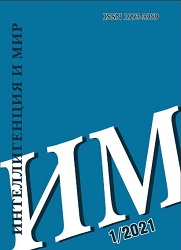Служебное положение медицинской интеллигенции Иваново-Вознесенска на рубеже XIX—XX в.
The official position of the medical intelligentsia of Ivanovo-Voznesensk at the turn of the 19th — 20th centuries
Author(s): Kirill Evgenievich BaldinSubject(s): Social history, Higher Education , History of Education, Health and medicine and law, 19th Century, Pre-WW I & WW I (1900 -1919), Interwar Period (1920 - 1939), WW II and following years (1940 - 1949), Sociology of Education
Published by: Ивановский государственный университет
Keywords: medical intelligentsia; Russian province; higher medical education in Russia; factory doctors; Zemstvo and city doctors; doctors of the state department; «Table of Ranks»; award system;
Summary/Abstract: In the context of the pandemic, that has engulfed the worldpresently, scientists’ interest in the history of medicine in different historical periods is growing. The role of doctors in the life of society at different times and in different countries, in particular in pre-revolutionary Russia, becomes very relevant topic now. The purpose of the article is to identify and summarize the main features of the official position of the medical intelligentsia in Ivanovo- Voznesensk — large industrial city in Russia at the turn of the 19th — 20th century. The purpose is realized through the following tasks: to determine the special education, received by the medical intelligentsia; to analyze the algorithm of assignment of ranks to doctors in pre-revolutionary Russia; to characterize the features of the service of medical intelligentsia in wartime; to study the reward system for doctors. The author used special methods of historical research — historical-systemic and historical-comparative methods. Doctors depended on the state machine, being partially embedded in it. The extent of this dependency was different. Doctors of the state department depended entirely on it, while the situation of city and Zemstvo doctors looked freer, local governments usually was sympathetic to the needs of health care and most often did not skimp on the payment of doctors. Factory doctors felt not so free, because they depended on the whims of private entrepreneurs. It should be taken into account, that doctors often worked at several jobs, for example in the city hospital, in the factory reception and in school at the same time. During the wars, all doctors, regardless of their official position, considered themselves mobilized and honestly performed patriotic duty.
Journal: Интеллигенция и мир
- Issue Year: 2021
- Issue No: 1
- Page Range: 30-49
- Page Count: 20
- Language: Russian

